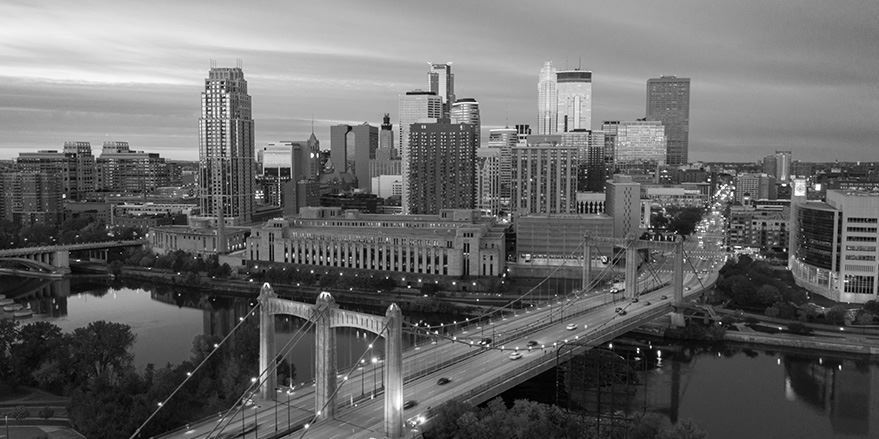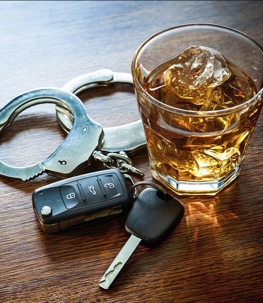How Your Life Could Change After a DWI
Though many drivers understand that they could receive fines, lose their driving privileges, and have to undergo treatment after a drunk driving charge, they fail to recognize how a DWI could affect their life in the long run.
Keep reading to learn more about how a DWI could affect your future — from college applications to child custody — and why having a skilled Minnesota DWI attorney can make the difference.
DWIs and College Applications
Underage drinking and driving can be a major event in a teen's life and can come back to haunt them when applying for colleges. If a teen driver was charged with a DWI before the application process, the charge could come up. Many universities require you to list any convictions or arrests you may have. This would include a DWI/DUI charge. Although some colleges may admit you after completing an alcohol counseling program, others may deny your application.
DWI and Child Custody
Any criminal conviction could impact child custody, and a DWI conviction can be a life-altering event for a single parent. Minnesota family courts want to ensure the child's safety before anything else, which means they will look through your criminal history.
The impact of a DWI on your child custody case depends on a variety of things, such as how recent the charge was, and if there were children in the car. Your co-parent could also easily use a DWI charge as collateral for the sole custody of your child, though Minnesota courts tend to rule on joint-custody.
DWIs and Firearm Rights
Most drivers do not face a loss of their right to purchase, own, and possess a firearm after a DUI. However, repeat offenses could cause you to lose your right to carry. Under Minnesota law, firearm rights may be prohibited if a person has:
- Been convicted of any misdemeanor (or a specific Minnesota "gross misdemeanor") drug violation within the past three years.
- Been committed for treatment for the chronic use of a controlled substance or marijuana.
- Been an unlawful user of a controlled substance.
- Been convicted by any court of a crime punishable by imprisonment for a term exceeding one year.
- Been charged with committing a crime of violence.
DWIs and Employment
After a DWI/DWI conviction, many of our clients worry about their future. Not only can a drunk driving charge result in fines and penalties, but it can also hurt your chances of securing employment. In today’s world, job security is essential, and having an experienced DWI attorney to fight for your future can make a great difference.
Some industries look deeper into DWI charges than others. Jobs that require driving—such as delivery, bus, and truck drivers—could trigger a deeper background search. In addition to making it harder to obtain a job, being convicted of a DWI in Minnesota can also limit your driving privileges, making it hard for you to travel to or for work.
Should I Tell My Employer/Prospective Employer?
Minnesota recently joined a handful of other states with "ban the box" legislation, which prohibits employers from requiring applicants to disclose any criminal history until they are chosen for an interview or offered an offer without an interview. However, employers can notify candidates that certain criminal offenses will automatically disqualify them from specific jobs.
Equal Employment Opportunity Rights
Additionally, the Equal Employment Opportunity Commission (EEOC) guides employers to weed out risky applicants without discriminating against them. No law requires an individual to report their DWI to their current employer; however, it may be a good idea to do so. For example, most teachers are subject to a moral code of conduct written into their contract and are required to report criminal charges to their employers.
DWIs and Jail Time
Based on different scenarios, it is possible to be sentenced to jail time in Minnesota following a DWI. Certain factors that contribute to this decision include:
- If you have prior DWIs.
- Your alcohol concentration.
- Passengers in the car (especially children).
- If you refused a breath or blood test.
A 2nd degree DWI is a gross misdemeanor in Minnesota and has a maximum jail sentence of a year. Having a prior conviction on your record is often the top factor contributing to a driver serving time.
Who Can Access My Criminal Record?
Criminal charges can add up over time and increase the sentences against you upon conviction. Additionally, prosecutors and judges can obtain your un-expunged criminal record and will be able to use this information against you in court. The following professional agencies and public employers can also access your record:
- Department of Education
- Human service agencies
- Criminal justice agencies
Can My Record Be Expunged?
Convicted Minnesota drivers can have their DWI expunged after completing any required sentences, including court-mandated probation, fines, and jail time. A DWI must qualify as a misdemeanor, a petty misdemeanor, or a gross misdemeanor to be expunged. However, expungements are not definite, making it essential to have a DWI attorney's help to fight your case.

